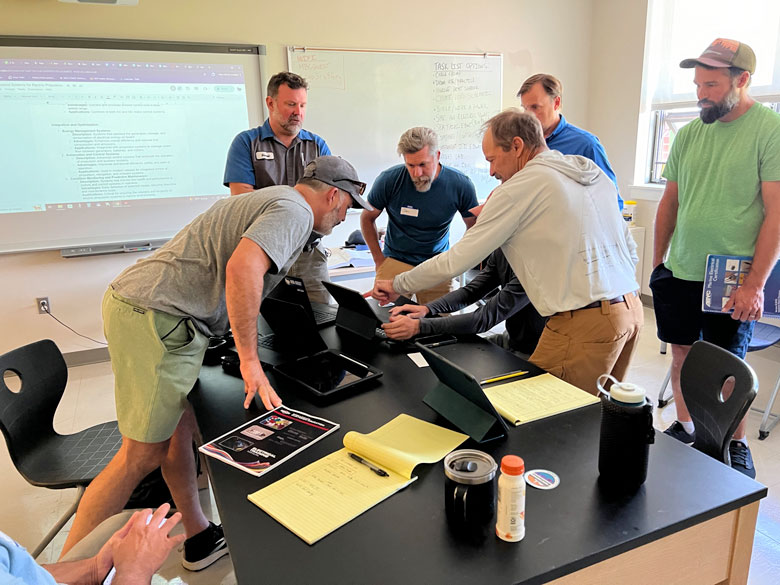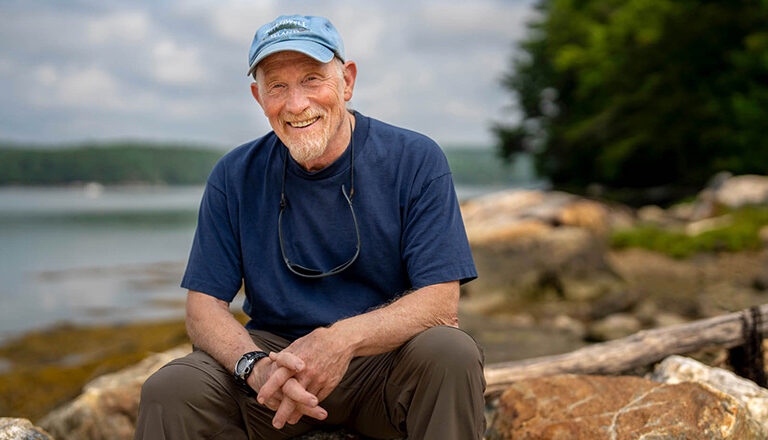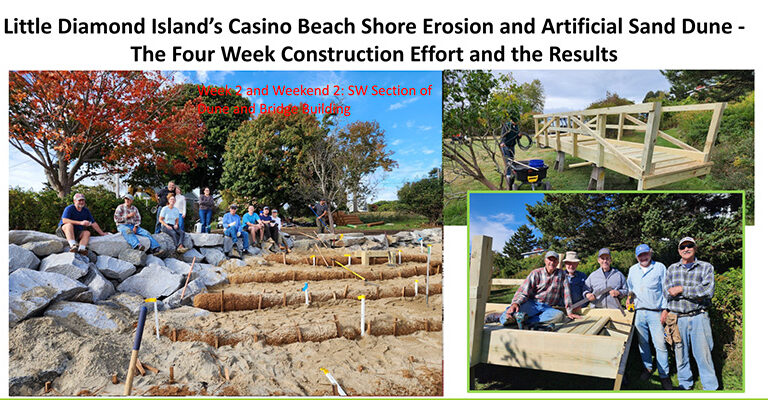As a K-12 island educator for 20 years, I often witnessed the joy of students learning and it is something I miss, now that I work primarily with adults. I know adults feel happiness when they learn something new, but it’s usually a more muted response, especially in formal settings like classrooms and professional development sessions.
Recently, I got to be with a group of adults who were highly engaged and excited to be teaching and learning together. This is a rare privilege and was one of the highlights of my summer.
The topic was electric outboards and the course was created with boat yard technicians in mind, but designed for a wide range of levels of familiarity with the content. It was offered in Rockland at Mid-Coast School of Technology in July and in Farmington at Foster Career and Technical Education Center in August.
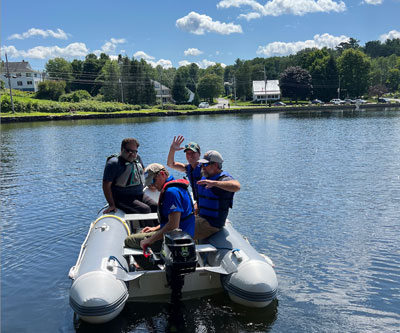
After over a year of planning and course development, it was thrilling to finally came to run the courses. Nearly 100% of participants rated the course as good or excellent overall and all successfully completed the course.
My role was to coordinate the partners involved—Kennebec Valley Community College, the two hosting technical centers, and Island Institute. Then I got to sit back and watch the magic instructors Dan Hupp and Joel Rowland created with their students.
The 23 students were a surprisingly diverse group that included a few women, some in their 20s and 30s, and a number of Mainers born and raised in other countries. Several students had deep experience with the content and generously shared their knowledge.
A couple of oyster farmers interested in using electric outboards on their farms attended, as well as some who were experienced mariners, but new to the world of battery power and electric outboards.
“The best part of the course was the open dialogue and mix of skills/knowledge,” one student noted. The format of the two-day bootcamp-style course included lecture on the theory and principles of electricity and electric propulsion fundamentals. The discussions were at times quite technical, but then would veer off into the inspirational and aspirational aspects of the subject.
In the afternoon, students alternated between labs and sea trials. The sea trials were in a rigid inflatable boat powered by an Elco electric outboard motor and were done in Rockland Harbor during the Rockland class and at a lake during the Farmington class.
The concept of “seeing is believing” is a powerful teaching tool. Students got to experience the benefits of electric outboards, including the clean and quiet operation, and to see how much power the battery for our electric outboard had.
Our set up was not designed for high speed, but it was very steady and even after being out on the water for a couple of hours, we were able to track our use on an app and found that we’d used very little of the battery’s total capacity.
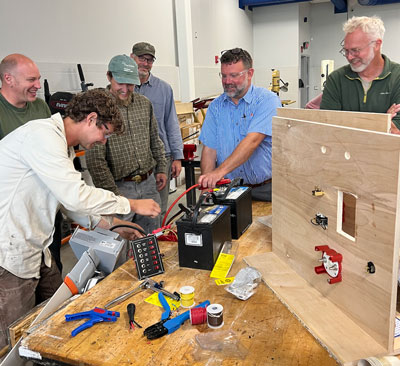
During the lab time, students worked on improving cable crimping skills, getting to know their digital volt-ohm meter, wiring electric panels, and learning about circuit boards. The opportunity to apply theoretical learning in the morning to the labs and sea trials in the afternoon created comradery and connection among both students and instructors.
The electric boat course is part of Island Institute’s effort to reduce greenhouse gas emissions in the marine economy by promoting the electrification of Maine’s working waterfront. Deploying demonstration electric boats to several Maine harbors and marine businesses and supporting shoreside infrastructure are key aspects to this work.
And so is the electric boat course. We will be offering a third round of the course sometime this fall in Washington County.
If you would like to receive registration information about the next round of course, please contact me at ythomas@gmail.com.
And the next time you are at a working waterfront, scan the boats for electric motors—and smile if you see some, knowing that there are now a few more folks who can maintain and repair them!
Yvonne Thomas is a senior community development officer at Island Institute, publisher of The Working Waterfront.
